The Rise of COVID-19 Scams and How You Can Avoid Them

Without a doubt, the rapidly spreading coronavirus is dangerous and claiming more lives. Due to this, people are on the lookout for information about the virus online.
Unfortunately, online scammers and hackers have taken advantage of the tragic COVID-19 and the panic around it to cause harm online. You may be worried and scared of getting infected with the virus yourself, however, don’t allow scammers and hackers to take advantage of your feelings.
Cybercriminals are targeting individuals with scams and malicious attacks related to the COVID-19 outbreak. In this article, we’ll be looking over some of the examples victims have received in forms of emails, as well as scams on online stores and websites.
If you want to stay safe and don’t want to get taken advantage of while preparing to work online, study from home, or simply stay indoors as a form of quarantine, make sure to give this article a read.
1. Scam emails promising a COVID-19 cure
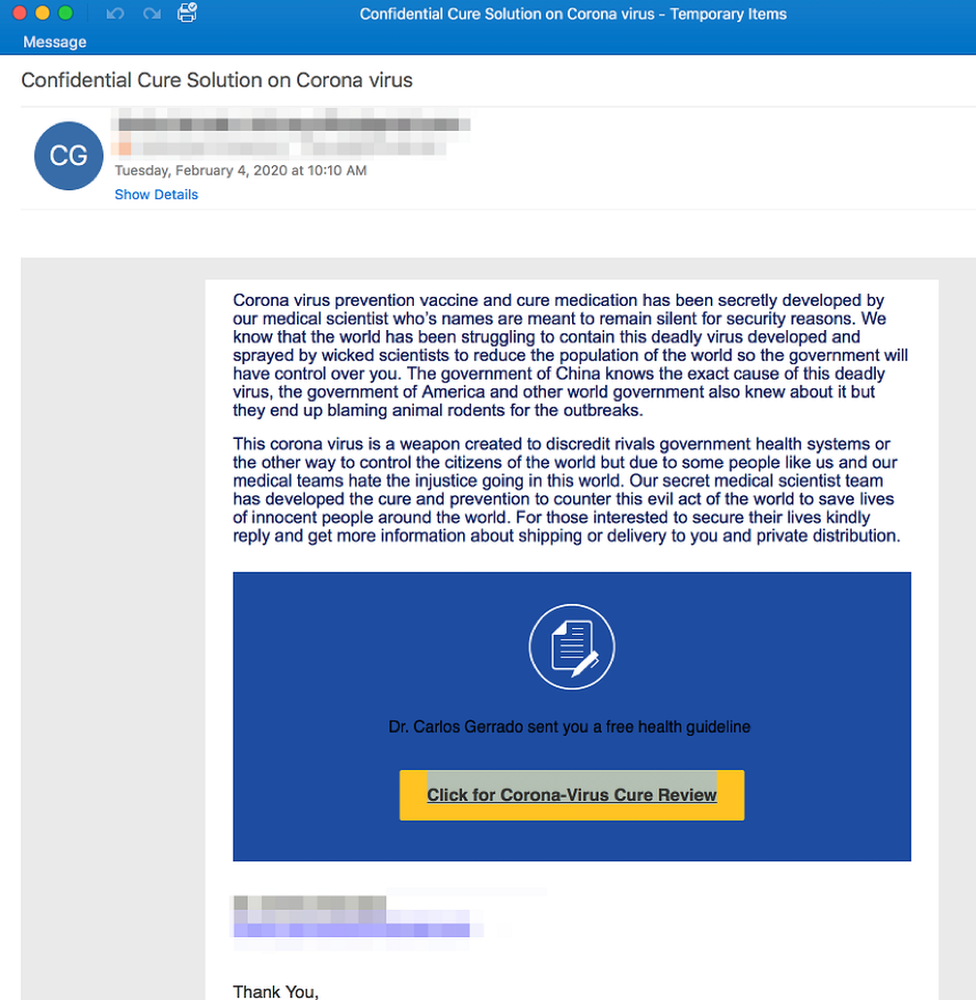
Many people have reported receiving emails from a mysterious scientist claiming to have a cure available for the deadly coronavirus and is sending you access to information about how to receive it.
These emails are usually formatted professionally, attempting to mimic the look of a serious message. However, when you click on the link attached, you’ll be redirected to a fake website. It usually looks similar to the login page of a trustworthy source, such as Microsoft, where you enter your actual login credentials and send it straight to the hackers.
If you fall for this trick, the hackers will have full access to your account, while you get no real information about the virus itself. We highly suggest not to click on these emails and move them straight to your Trash — wait for international sources to announce when a cure is discovered and available.
2. COVID-19 tax refund scam
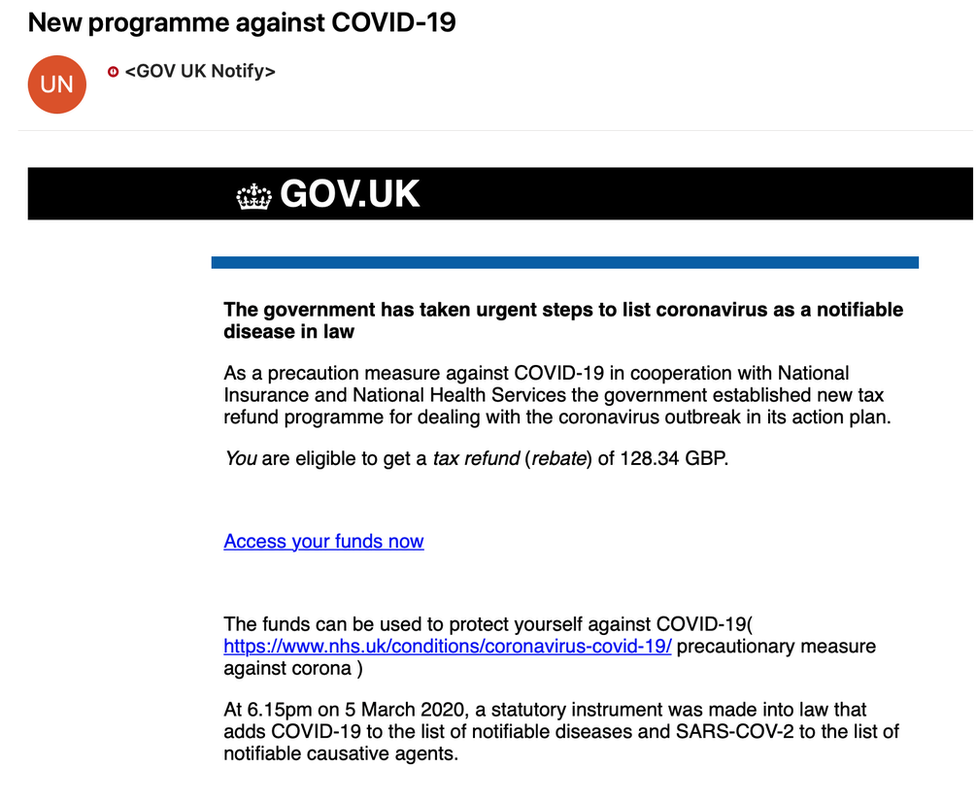
Over 200 emails were sent out within an hour posing as various governments offering a tax refund in order to help those in need with funds to combat the coronavirus. While these emails look convincing and definitely say something all of us would love to hear, they aren’t real.
When clicked on the link provided to claim your funds, you get redirected to a webpage asking you to enter your legitimate financial information. Once you hit send, you give access to this information to malicious hackers, scammers, and they will probably use it to harm you.
The risks of this scam are identity theft, breach of privacy, and even stolen money. Make sure to never click on any links attached to emails promising you tax refunds — this is not how any government would go about informing you.
3. World Health Organization (WHO) scam
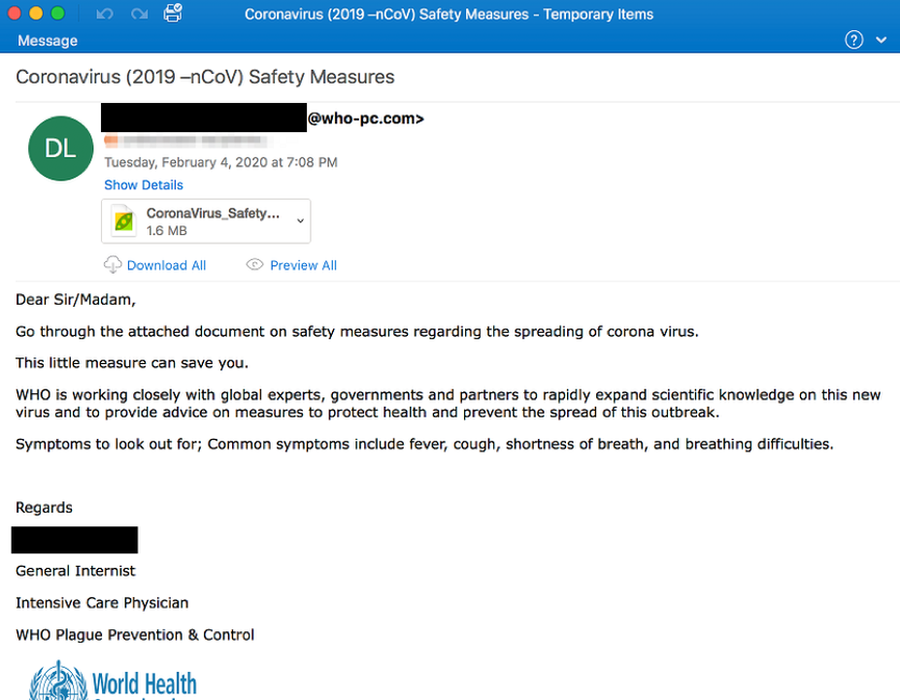
Hackers have been sending out dozens of emails, claiming to be representatives of the World Health Organization (WHO). They attach a document to the email and ask you to download it onto your computer in order to get informed about safety measures against the COVID-19 coronavirus.
Once you download the file, there’s a huge chance that you get a virus on your computer. This could be any type of malware, starting from adware all the way up to dangerous ransomware. The most common infection has been the AgentTesla Keylogger, which records your keystrokes and sends them to the attackers, potentially stealing sensitive information from your conversations and online activity.
If you get any emails from people claiming to represent the WHO, immediately delete it. All information about the COVID-19 virus is immediately accessible from trusted, well-known sources, including the official World Health Organization website accessible at www.who.int.
4. False information and articles
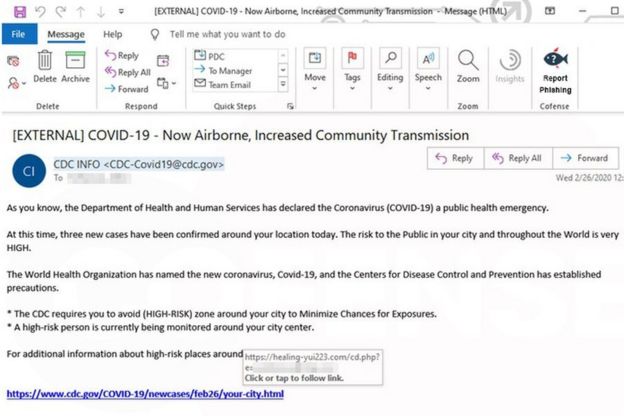
Some attackers have taken an approach to cause panic in email recipients by spreading false information and writing up fake articles. They often pretend to be representatives of the Centres for Disease Control and Prevention (CDC) and claim things such as COVID-19 becoming airborne.
Hearing something like this, you might be intrigued to click on any links attached to get more information about the current situation, new prevention methods, and new things to look out for. However, we advise you not to click on links in these emails, as they’re far from safe.
These attacks try to do something similar to the coronavirus cure emails, which is redirecting you to a page that looks trustworthy — often a well-known brand or source, — but is actually fake and sends your real credentials to the attackers.
To get information about the COVID-19 virus, make sure to use trusted sources instead of dodgy emails in your spam folder.
5. Donation scam
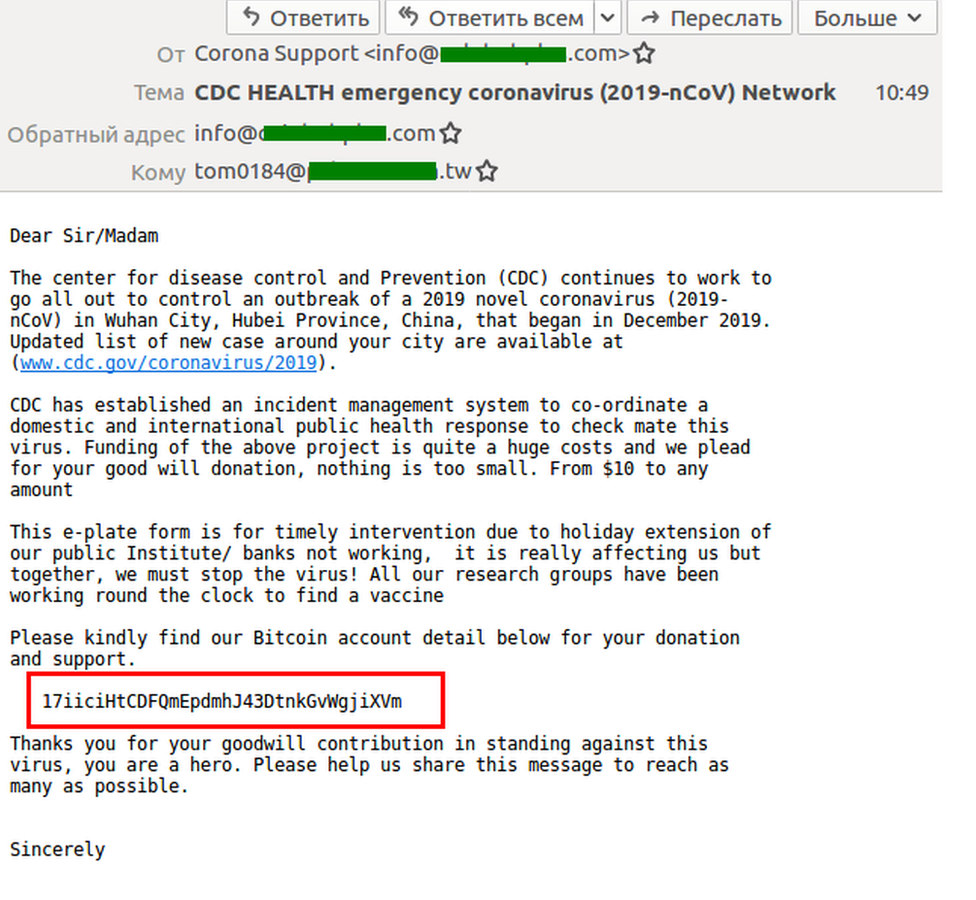
Another wave of deception has started by people sending out fake donation emails to unsuspecting victims. Scammers once again use the name of the Centres for Disease Control and Prevention (CDC) to ask for donations in order to support the fight against COVID-19. However, one thing seems off about the email.
In the reported message, the sender asks for donations to a Bitcoin address. This is a cryptocurrency, which allows scammers and criminals to act freely and receive funds without being tracked down. Make sure to never ever send payments through cryptocurrency unless you’re convinced it’s a safe deal.
If you want to help fight the coronavirus by making a donation, make sure to use the official CDC Foundation website, or donate to local charities and organizations in your area.
6. False advertisement
There’s an insanely high demand for supplies that promise to help you prevent an infection from the COVID-19 coronavirus. The issue is that many of these products are overpriced and essentially useless.
Scammers and online sellers have started to put out goods at insane prices that attempt to capitalize off of your fear and caution.
Make sure to only commit to buying supplies advised by experts. Do your research on what products can help you in what situations and stay safe. After all, the best way to combat the coronavirus is still frequent hand washing combined with general prevention methods to ensure the virus doesn’t get into your system.
To keep yourself safe from being attacked by online scammers and hackers, check our website for a wide range of anti-virus products.











